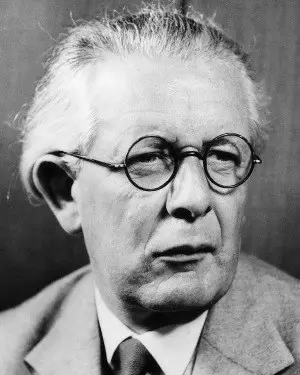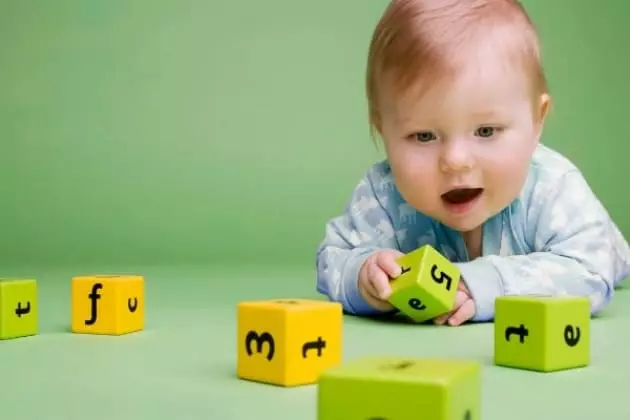Cognitive development is the process of improving all varieties of mental activity (that is, perception, memory, formation of concepts, solving tasks, imagination and logic). The concept of cognitive development was proposed to the world Jean Piaget, which is a psychologist and philosopher from Switzerland. In today's material, I want to explore a details of the Concept of Piaget, talk about its distinctive features and criticism.

Features of the concept of Jean Piaget
Before him, psychologists used two techniques, allowing to investigate the cognitive development of children:- The first - was based on the biological ripening of the child. It was focused on the "natural" component of development.
- The second - repelled from the principle of learning and environmental impact. Here the main role was assigned to the "acquired" component.
Find out what awaits you today - a horoscope for today for all zodiac signs
By numerous subscribers requests, we have prepared an accurate horoscope application for a mobile phone. Forecasts will come for your zodiac sign every morning - it is impossible to miss!
Download free: Horoscope for every day 2020 (Available on Android)
Jean Piaget decided to take a look at the old problem under a new angle. It began to concentrate on the naturally developing needs of the baby, as well as on his relationship with the surrounding reality.
Overview Stages of Development of Intellect on Piaget
The cognitive theory of the pianget says that the human mind in the process of its development takes place in several basic stages.
He identified them with such names:
- With the emergence of the two-year-old age - the stage of sensory motor intelligence;
- from the biennium to eleven years old - the preparation and organization stage of certain operations;
- The second paragraph refers to the substanding submissions (lasts from two to seven years);
- and the substanding of certain operations (from seven to eleven years);
- Then follows the stage of formal operations (from eleven to about fifteen years).
Let's get acquainted with the peculiarities of each of the stages.
Sensomotor stage
It is characterized by a close connection of motor activity and perception in kids. It is assigned to the first two years of the child's life. At the sensorota stage, the baby opens up the relationship of his actions with their consequences.
For example, the child will know how much the distance he needs to pull for a certain subject, which will happen if you throw a spoon on the floor. He also realizes that hands and legs are parts of himself, and the railing crib - no longer.
Such infinite "experiments" are designed to help the baby form the concept of themselves as a separate creature from the surrounding reality. At the stage of sensory motility, significant discovery lies in the concept of stability of objects - that is, the baby understands that items exist, even if they cannot be touched or see.
For example, if you cover the toy with a blanket, to which the culberry kid is 8 months old from the family, then he will immediately stop attempts to get it - she stopped existing for him.
And already a child of 11 months will take more active search for an item hidden from him. An older kid is aware of the existence of the subject, even if he does not see his eyes - that is, he developed a concept about the stability of objects.

Preoperative stage
In the interval from one and a half to two years, the child begins to use speech. Words for it, similar to symbols, represent objects or a group of objects, and one item can be associated with another. For example, a three-year-old kid playing with a stick, as if it was a horse, a cube for him can take the role of a car and so on.But even despite the symbolic thinking in the kids of three or four years, there is no logical organization in their words and images.
The stage of cognitive development, which occurs in the period from two to seven years, is known for the Piaget as a preoperative. It is due to the fact that the baby is still not aware of specific rules or operation. The operation is a procedure when the information is divided, combines or changes by any other logical method.
Stages of operations
At the age of seven to twelve years, the baby is engaged in the development of different concepts to preserve and perform other logical manipulations. For example, children place items on a specific feature (color, height, mass, etc.). In addition, at the specified time, the formation of a mental view about consistent action begins.
Suppose the child of five years can independently come home from kindergarten, but he will not explain exactly exactly what I got. Also, it will not be able to draw a map of its route. The path is in them, since he knows where to make a turn, but where to go straight, but there is no common picture of the road. But at the age of eight years, the baby will already be able to portray the traveled route.
According to the concept of Piaget, this period is known as the "Stage of Specific Operations". Although children enjoy quite abstract terms, but they do it in relation to certain subjects or objects - that is, to the fact that they can perceive with the help of senses.
At the same time, moral is gradually formed at the operating stage. The baby realizes that he lives in society, where specific social norms apply.
Approximately to the eleven-twelve years, the child comes to the format of thinking adults. Then he is already capable of pure symbolic thinking. Jean Piaget gave the name to this stage of the "Stage of Formal Operations".

Why criticize the concept of piaget?
The theory under consideration has become a very large intellectual achievement. The concept of Piaget was a revolutionary in the matter of ideas about the cognitive development of children. Many scientists were inspired by several decades. And numerous studies confirmed the conclusions made by Piaget.
But over time, even more advanced techniques have appeared, allowing you to test the mental activity of preschool and younger school age. According to them, it turns out that Piaget did not consider some moments.
For example, the kid can safely cope with many tasks designed to check the concept of stages, it must have basic information processing skills: developed attention, memory and know specific facts.
Sometimes it turns out that the child actually has the ability to cope with it, but not able to cope with the task due to the lack of skills.
If you are interested in cognitive development, you want to get even more information about it, I recommend to view the following video:
